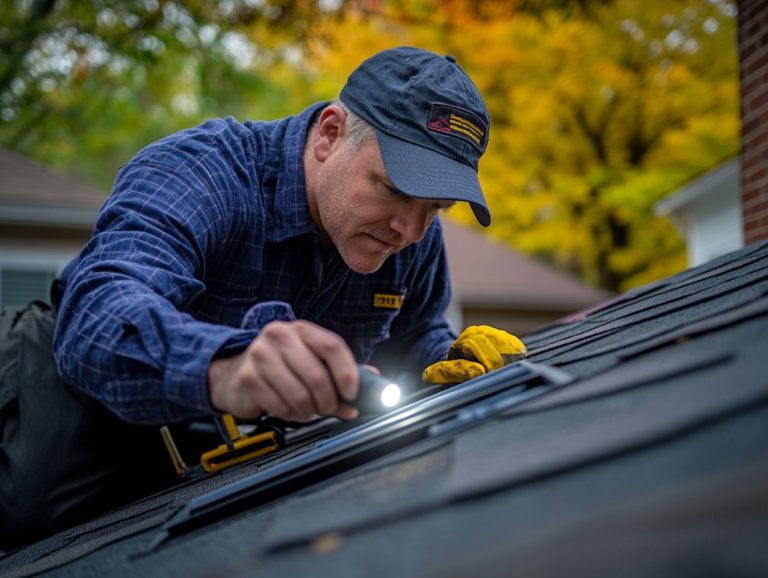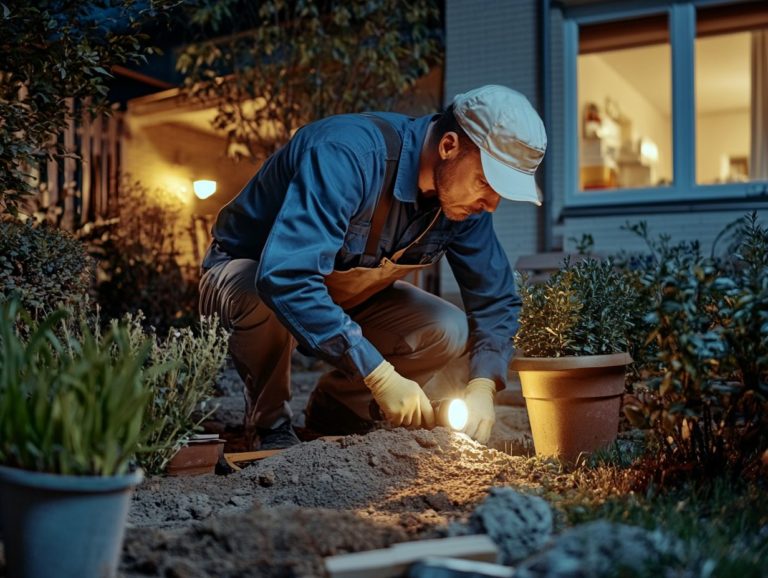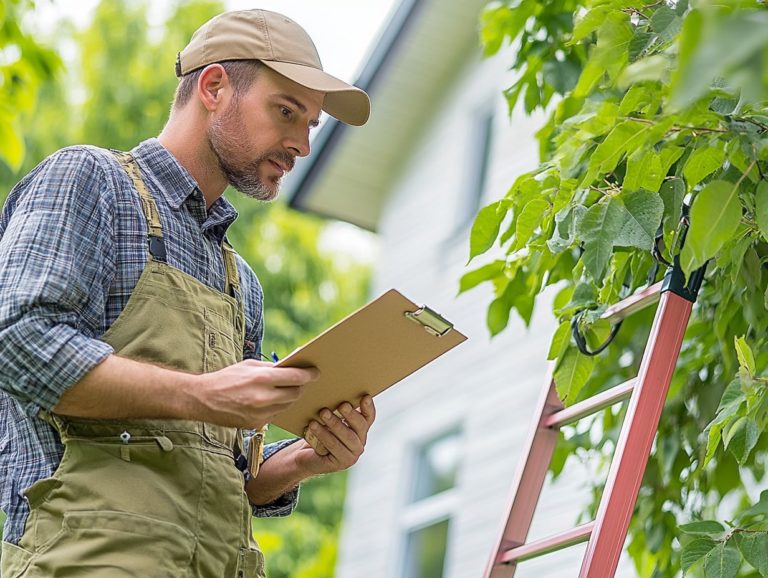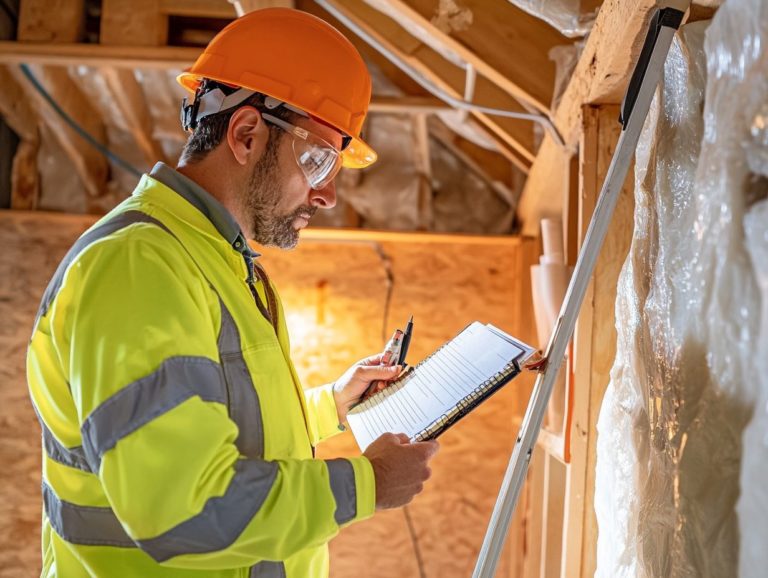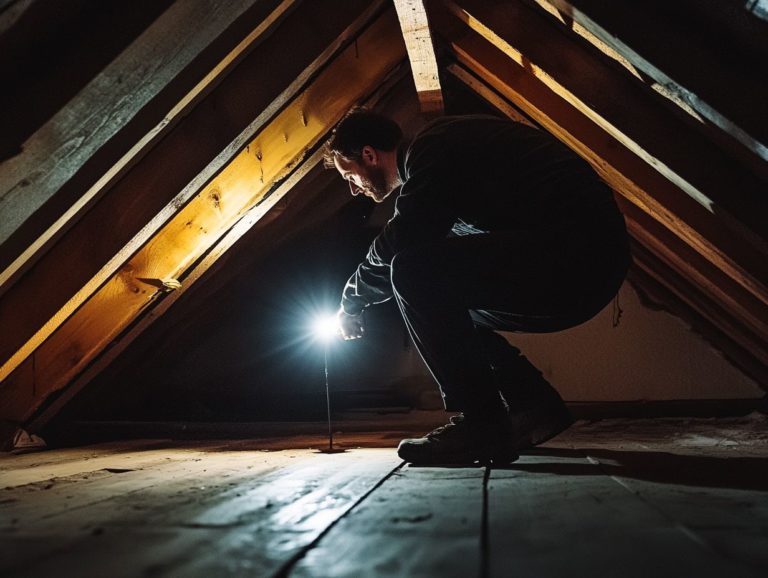5 Must-Have Qualifications for Home Inspectors
Becoming a successful home inspector involves more than just having a keen eye; it requires a blend of expertise, experience, and essential skills.
Discover the five essential qualifications that set top home inspectors apart! From a comprehensive understanding of building codes to the significance of strong communication skills, each qualification is vital for conducting thorough and reliable inspections.
Whether you re contemplating a career in home inspection or seeking to grasp what distinguishes a great inspector, this guide provides valuable insights to elevate your understanding.
Contents
- Key Takeaways:
- 1. Extensive Knowledge of Building Codes and Regulations
- 2. Experience in the Construction Industry
- 3. Strong Attention to Detail and Observational Skills
- 4. Good Communication and Interpersonal Skills
- 5. Certification and Training from a Reputable Organization
- What Is a Home Inspector and What Do They Do?
- Frequently Asked Questions
- What are the 5 must-have qualifications for home inspectors?
- Why is a high school diploma or equivalent important for home inspectors?
- What should I look for in a home inspection training course?
- Do all states require home inspectors to be licensed or certified?
- What is the importance of on-the-job training for home inspectors?
- Is professional certification necessary for home inspectors?
Key Takeaways:
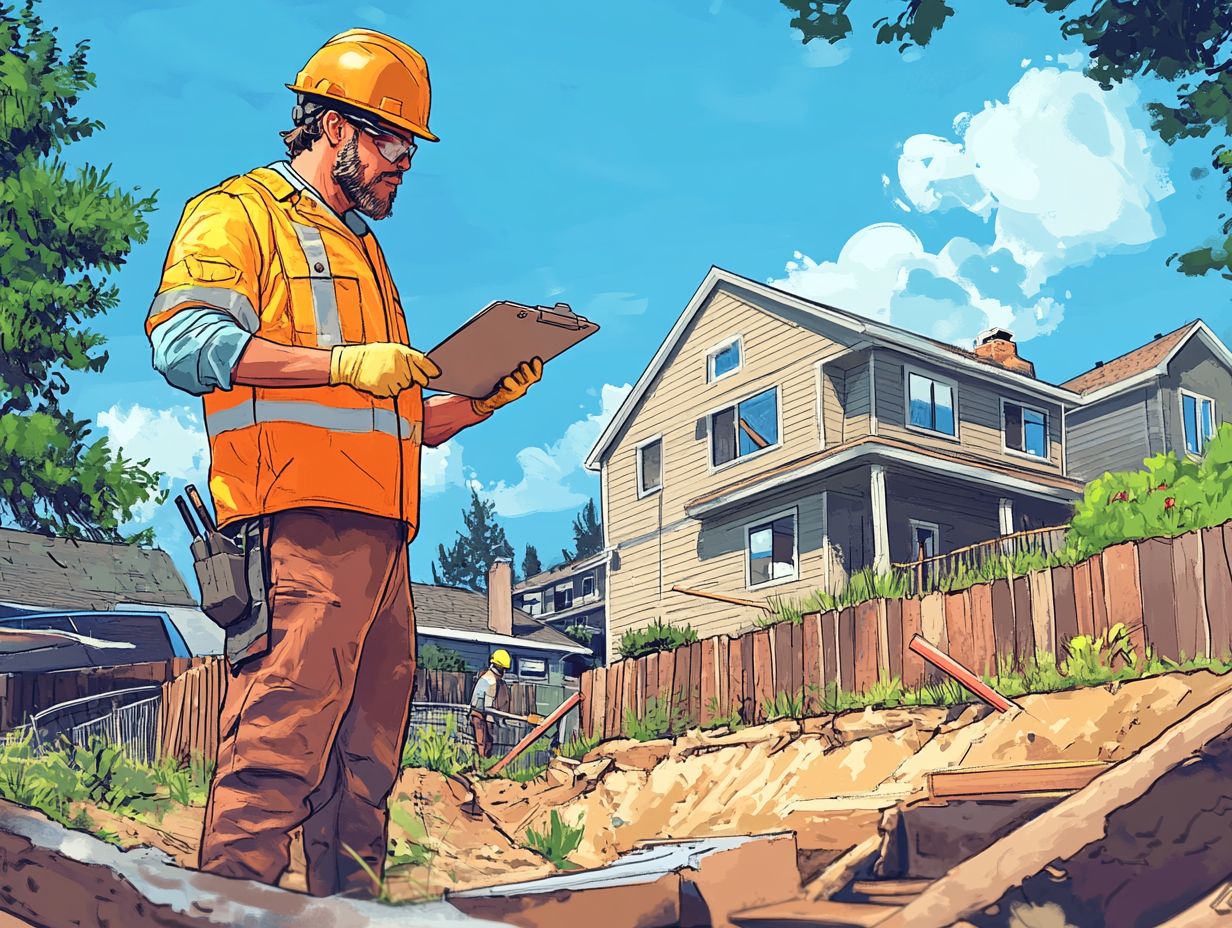
A home inspector must have extensive knowledge of building codes and regulations to ensure the safety and compliance of a home.
Experience in the construction industry is essential for a home inspector to understand the complexities and potential issues of a home’s structure, which is why knowing how to choose a home inspector is crucial.
Strong attention to detail and observational skills are crucial for a home inspector to identify any potential problems or hazards in a home, especially when following 5 tips for a productive home inspection.
1. Extensive Knowledge of Building Codes and Regulations
To thrive as a successful home inspector in California, you must develop a deep understanding of the building codes and regulations that govern the state. This includes familiarizing yourself with the California Trade Practice Act and pertinent home inspection standards, which ensure that properties meet essential safety and quality benchmarks for homeownership.
Grasping these laws enables you to accurately assess a property’s condition and helps avert potential legal troubles down the line. You must stay updated on changes in building codes, as these revisions often reflect the latest advancements in safety standards and construction practices.
By keeping yourself informed about these changes, you enhance your credibility and build trust with clients, demonstrating a strong commitment to due diligence. This commitment to ongoing education is crucial in establishing a solid professional reputation, ultimately leading to more successful inspections and satisfied homeowners.
2. Experience in the Construction Industry
Having a background in the construction industry dramatically enhances your qualifications as a home inspector in California, offering you practical insights into building structures that are invaluable during property inspections.
This solid foundation allows you to assess not just the visible aspects of a home but also the underlying systems that contribute to its overall integrity.
With hands-on experience in framing, electrical work, and plumbing, you re equipped to spot potential red flags that others might easily miss. This ensures the homes you inspect are safe and sound.
Programs like the International Association of Certified Home Inspectors (InterNACHI) and the National Association of Home Inspectors (NAHI) provide specialized training that deepens your understanding of construction methods and inspection protocols, effectively bridging the gap between construction knowledge and thorough home evaluation.
3. Strong Attention to Detail and Observational Skills
A successful home inspector must possess a keen attention to detail and exceptional observational skills. Knowing how to spot a good home inspector ensures your property inspections are thorough and that the reports you generate accurately reflect the condition of each property.
You can refine these skills through various techniques, such as regular practice, targeted training sessions, and mindful observation exercises. For example, by honing your ability to spot small cracks in walls or unusual stains on ceilings, you might uncover underlying issues that could otherwise go unnoticed.
Be mindful of common oversights. Neglecting to check the attic or failing to assess plumbing conditions properly can lead to significant consequences for future homeowners. Meticulous reporting is essential; it highlights even the smallest findings, ensuring your clients are fully aware of any potential problems that may not be immediately visible.
Remember, your attention to detail can save homeowners from costly surprises down the road!
Considering a career in home inspection? Take the next step towards a fulfilling profession by seeking out qualified training programs today!
4. Good Communication and Interpersonal Skills
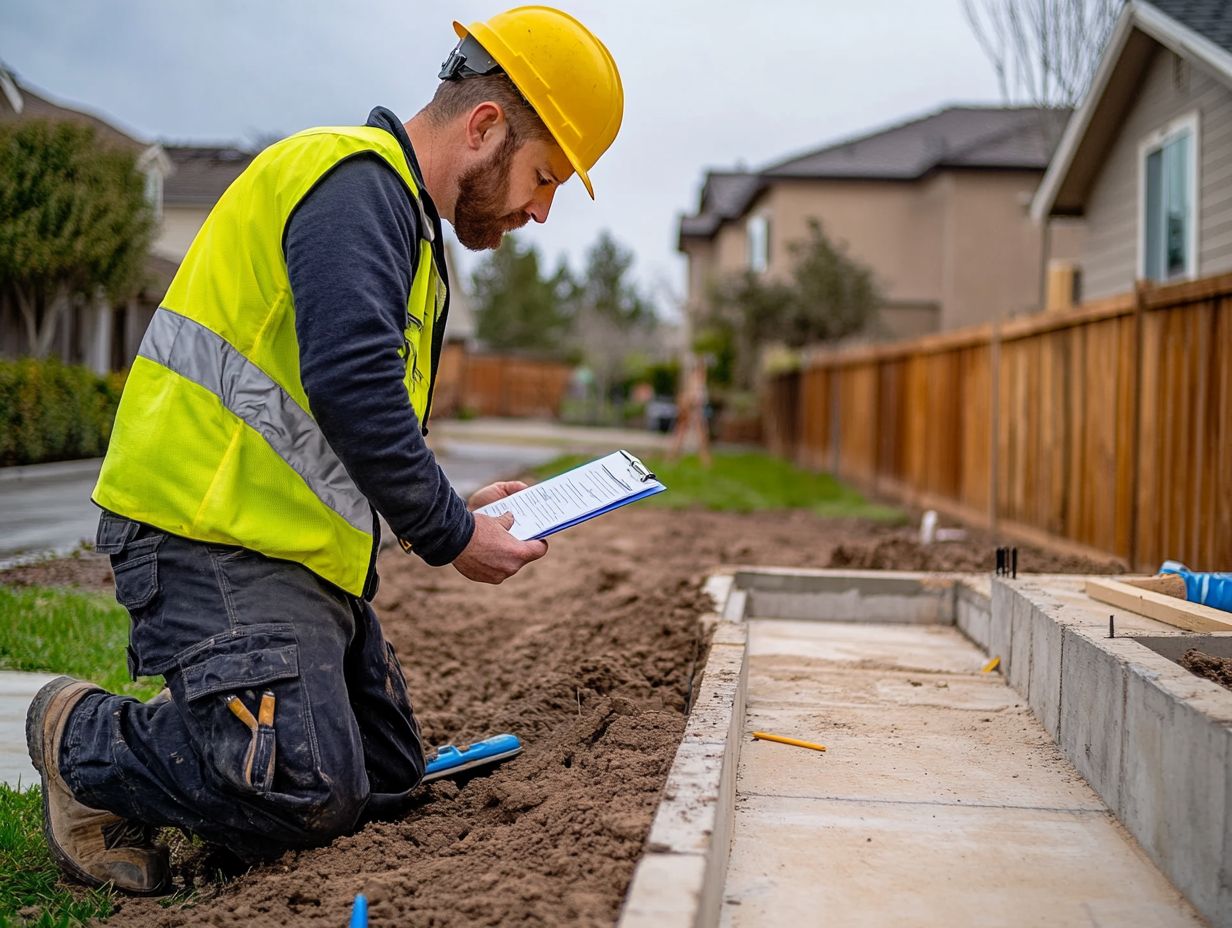
Good communication and interpersonal skills are critical for you as a Home Inspector. They enable effective interactions with clients, real estate agents, and other professionals in the industry.
Prioritizing clear and concise dialogue builds trust with your clients and streamlines the entire inspection process. Effective communication allows you to present your findings in a way that’s easy to understand, alleviating client concerns and fostering strong relationships.
To sharpen these essential skills, consider participating in networking events that offer valuable chances to practice your communication in a professional setting.
Joining reputable associations, such as the American Society of Home Inspectors, provides you with resources, training programs, and a supportive community of peers who can share insights on enhancing your interpersonal interactions.
Engaging regularly in these activities can lead to improved client satisfaction and a more successful business overall.
5. Certification and Training from a Reputable Organization
Obtaining Home Inspector certification from a reputable organization is a crucial step in establishing a credible career in California’s home inspection industry. This certification verifies your adherence to rigorous training programs and certification requirements.
This certification enhances your credibility and builds trust with clients, showcasing your commitment to professional excellence.
Various credentialing bodies, like InterNACHI and the Inspection Certification Associates, offer comprehensive training programs designed to equip you with the essential skills and knowledge needed for success.
Successfully passing the National Home Inspector Examination is a significant milestone that signifies your readiness to tackle the challenges of the field.
Get certified today to stand out in California’s competitive home inspection market! By participating in these programs, you bolster your qualifications and contribute to elevating the overall standards within the industry.
What Is a Home Inspector and What Do They Do?
A home inspector is your key ally in navigating the California real estate landscape. This trained professional meticulously assesses the condition of residential properties, evaluating structural integrity and safety while delivering detailed inspection reports that inform potential buyers about the property s state in a competitive market.
Their role goes beyond simple observations; they conduct thorough examinations of essential systems like electrical, plumbing, and roofing, pinpointing any factors that could present risks or require repairs. By bringing potential issues to light, these inspectors arm you with crucial knowledge, helping you make smart choices before taking the plunge into a purchase.
The comprehensive reports they generate are invaluable tools for negotiation and budgeting, often influencing the final sale price. This diligence safeguards your investment and paves the way for a smoother transition into homeownership, ensuring you’re well-equipped for your new responsibilities.
What Are the Responsibilities of a Home Inspector?
The responsibilities of a Home Inspector involve meticulous evaluations of property conditions, encompassing structural assessments, electrical and plumbing inspections, and the creation of detailed home inspection reports for clients.
These evaluations require more than just checklists. They need a keen eye for detail and a solid grasp of construction practices to pinpoint potential issues that could impact safety and value.
Your inspections must adhere to state laws and industry standards, ensuring that every finding is thoroughly documented. This includes identifying deficiencies and recommending corrective actions, enabling clients to make informed decisions and shielding home buyers from expensive repairs in the future.
By following these rigorous processes, you demonstrate a steadfast commitment to professionalism and transparency in this crucial field.
Why Are These Qualifications Important for a Home Inspector?
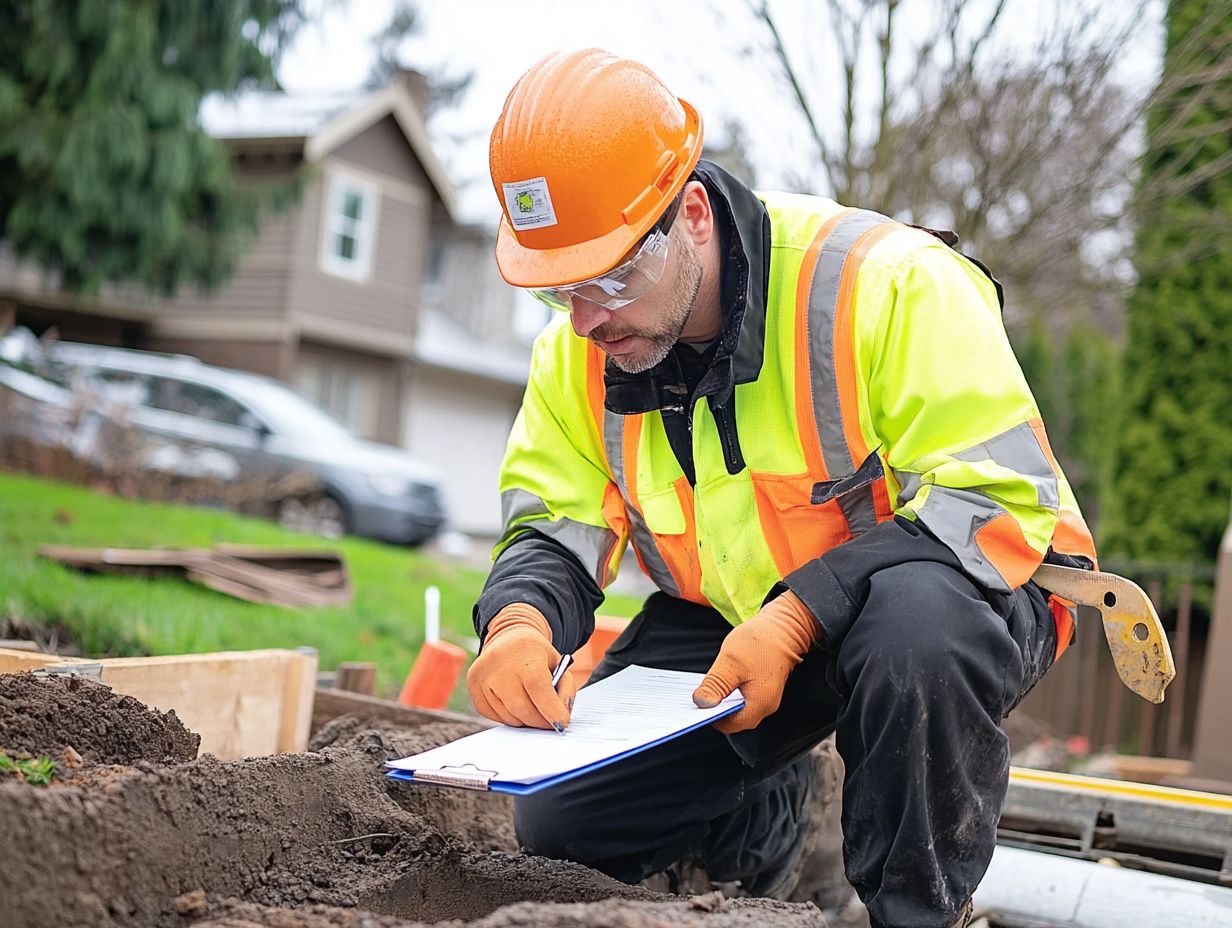
The qualifications of a home inspector are essential for credibility in the industry and for compliance with California laws that protect homeowners and buyers, including important things to know about home inspections.
These credentials are important in reducing the risk of legal disputes that can arise from overlooked issues during inspections. By following established guidelines and keeping your knowledge updated, you can identify and report hazards that might otherwise go unnoticed.
Ongoing education keeps you informed about the latest construction techniques, materials, and regulations. This ultimately benefits your clients through comprehensive evaluations. A proactive approach enhances your reputation and instills confidence in your clients, fostering trust while safeguarding both parties from future complications.
How Can a Home Inspector Stay Up-to-Date with Building Codes?
To maintain a successful career, a home inspector must continuously stay informed about evolving building codes and California laws through various professional development opportunities.
Active participation in workshops offers insights into industry standards and regulations.
Joining professional associations like CREIA provides valuable networking opportunities and access to exclusive resources and seminars.
Utilizing online training platforms allows you to learn at your own pace, ensuring you digest information that directly relates to your work.
Ongoing education keeps you competitive and knowledgeable, ultimately benefiting both your career and your clients.
What Are Some Common Mistakes Made by Home Inspectors?
Home inspectors often fall into traps, such as overlooking critical structural issues or failing to deliver detailed inspection reports. These oversights can lead to serious legal complications and client dissatisfaction.
Such lapses not only jeopardize the integrity of properties but also cast a shadow on the entire profession. Clients depend on inspectors to identify potential hazards; any negligence can result in financial setbacks and eroded trust.
To mitigate these risks, inspectors must prioritize continuous education, staying updated on the latest inspection standards and building codes. By investing in proper training and using comprehensive checklists, inspectors can conduct thorough evaluations and provide accurate, actionable reports that highlight significant concerns.
How Can a Home Inspector Improve Their Skills and Qualifications?
Home inspectors can enhance their skills and qualifications by engaging in certification programs, enrolling in relevant training courses, and participating in professional development tailored to the industry.
To excel in this competitive field, embracing a mindset of lifelong learning is essential.
Attending workshops sharpens your technical skills and keeps you informed about the latest technologies and regulations. Networking events allow you to connect with fellow inspectors, facilitating the exchange of valuable insights.
Seeking mentorship from seasoned experts offers invaluable guidance, enriching your understanding of complex scenarios. By prioritizing continuous education, home inspectors can ensure they remain at the forefront of their profession, ultimately delivering greater value to their clients.
Frequently Asked Questions
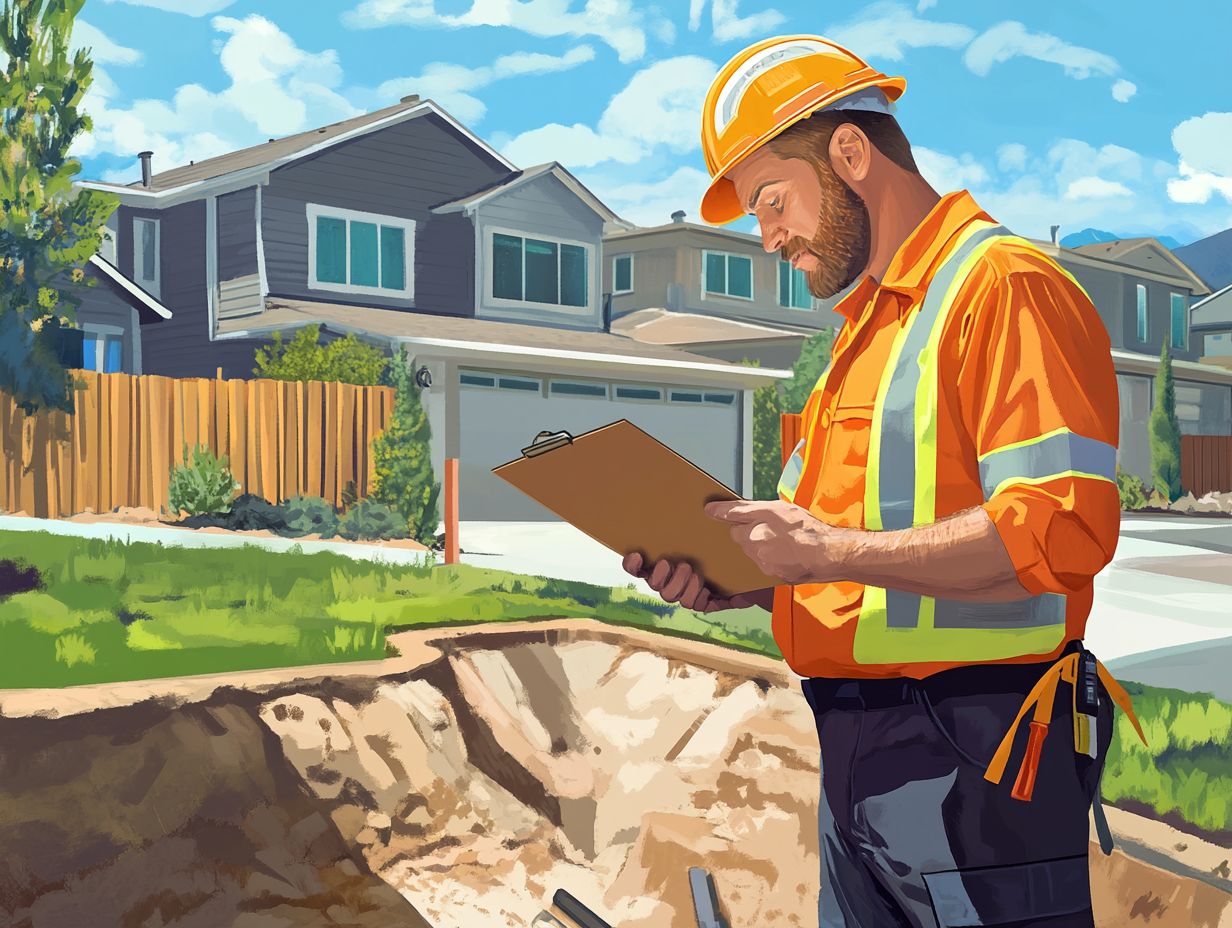
What are the 5 must-have qualifications for home inspectors?
The 5 must-have qualifications for home inspectors are a high school diploma or equivalent, a home inspection training course, on-the-job training, state licensing or certification, and professional certification.
Call to Action: If you are looking for a qualified home inspector, ensure you choose someone who prioritizes ongoing education and understands what to look for in a home inspector’s credentials!
Why is a high school diploma or equivalent important for home inspectors?
A high school diploma or equivalent ensures a home inspector has essential reading and writing skills, which are necessary for performing the job effectively. Learning how to find a qualified home inspector can further enhance your home buying experience.
What should I look for in a home inspection training course?
Choose a training course that covers all job aspects, including safety procedures and inspection techniques. It should also offer hands-on training and be accredited by a recognized organization.
Do all states require home inspectors to be licensed or certified?
No, not all states require licensing or certification. However, getting certified is wise, as it boosts credibility and opens more job opportunities.
What is the importance of on-the-job training for home inspectors?
On-the-job training provides practical experience, allowing inspectors to apply their classroom knowledge. This experience is vital for developing necessary skills.
Is professional certification necessary for home inspectors?
While certification is not mandatory, it is highly recommended. It shows expertise and credibility, attracting more clients and potentially leading to higher pay.

